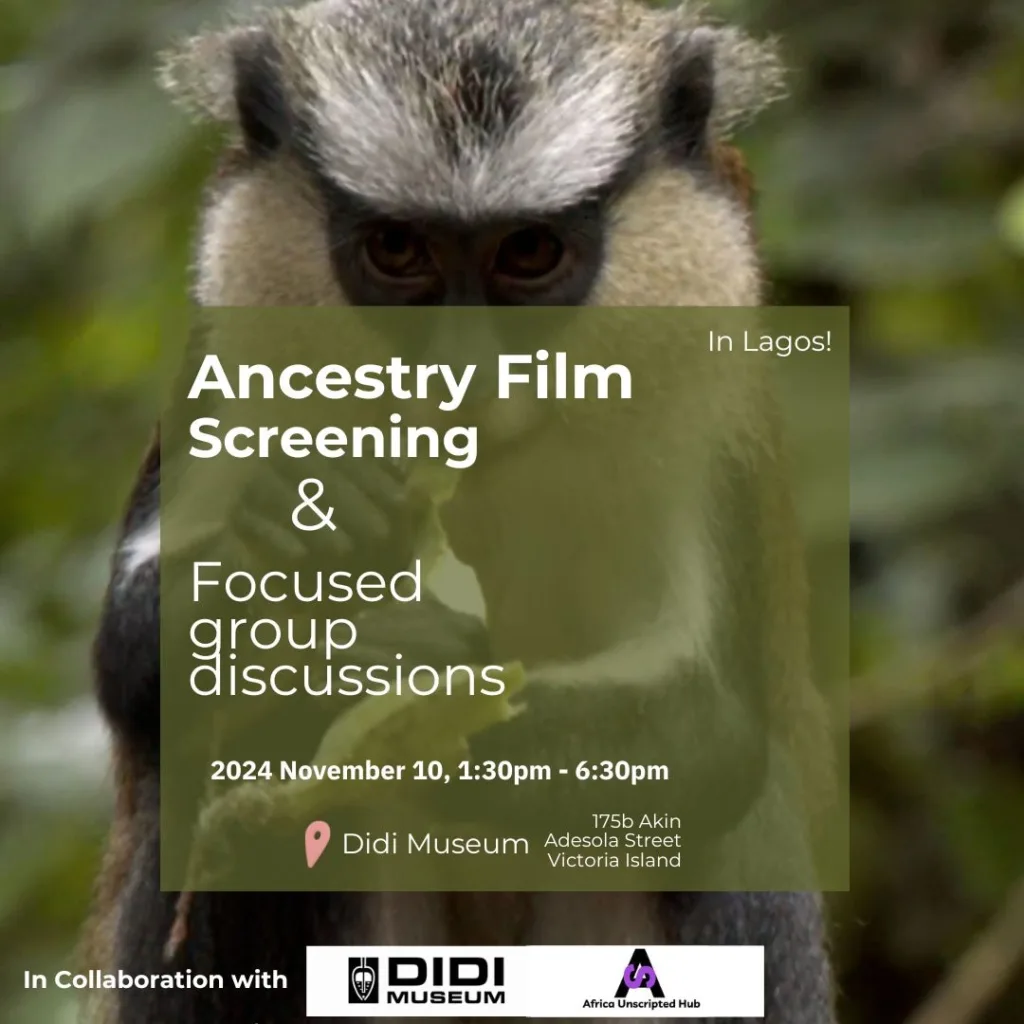
For us at DIDI Museum, November began on a high note. On November 10, 2024, we hosted a private screening of the documentary Ancestry. The museum welcomed a group of 30 Nigerian creatives, storytellers, and conservation experts actively working in indigenous communities across Nigeria.
In an intimate setting, we screened Ancestry, a documentary film by Jubilian Ngaruwa. The documentary delves into the indigenous knowledge systems of the Idemili and Osogbo communities in Nigeria, highlighting their vital contributions to the global biodiversity conservation conversation.
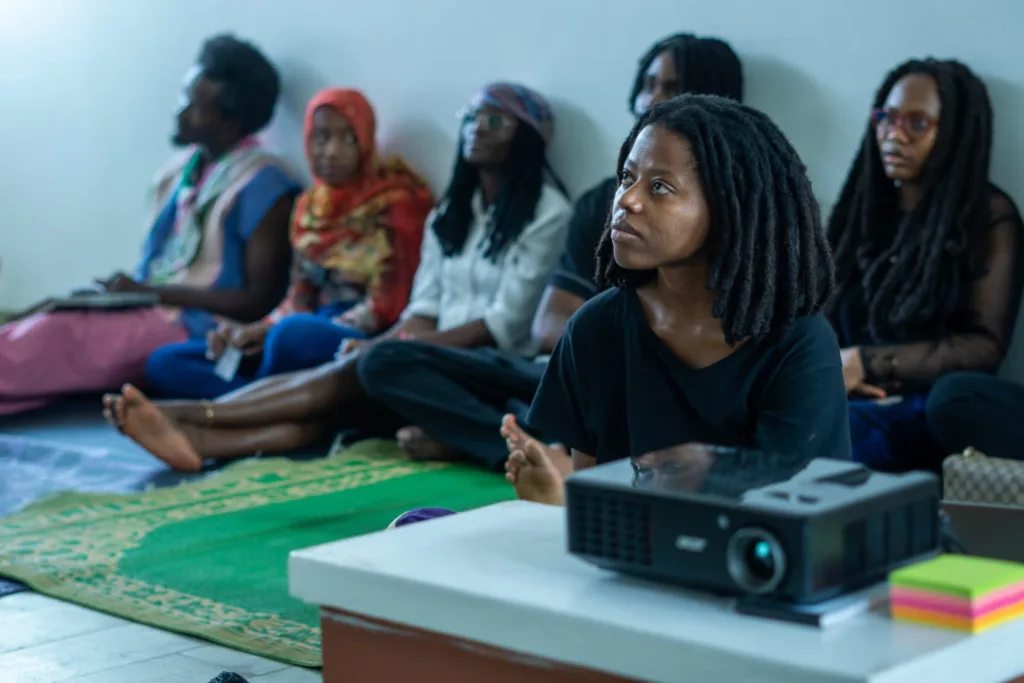
Jubilian Ngaruwa(foreground in black) and the audience during the screening of Ancestry.
The two-part documentary explores the unique conservation practices of these communities. The first part focuses on the sacred forest in Idemili, Anambra State. The local community preserves biodiversity by protecting pythons—viewed as sacred and coexisting peacefully with people. The documentary underscores the importance of this respectful coexistence. Furthermore, it shows the community’s dedication to preserving the forest. Their efforts protect it from threats like illegal logging and unsustainable firewood harvesting.
The second part shifts to the Osogbo community in Osun State. Here, efforts focus on maintaining harmony between people and the surrounding rainforest. The documentary showcases how the community strives to protect this natural habitat. The community sets up practices to ensure the forest’s longevity and to safeguard it against activities that could cause degradation.
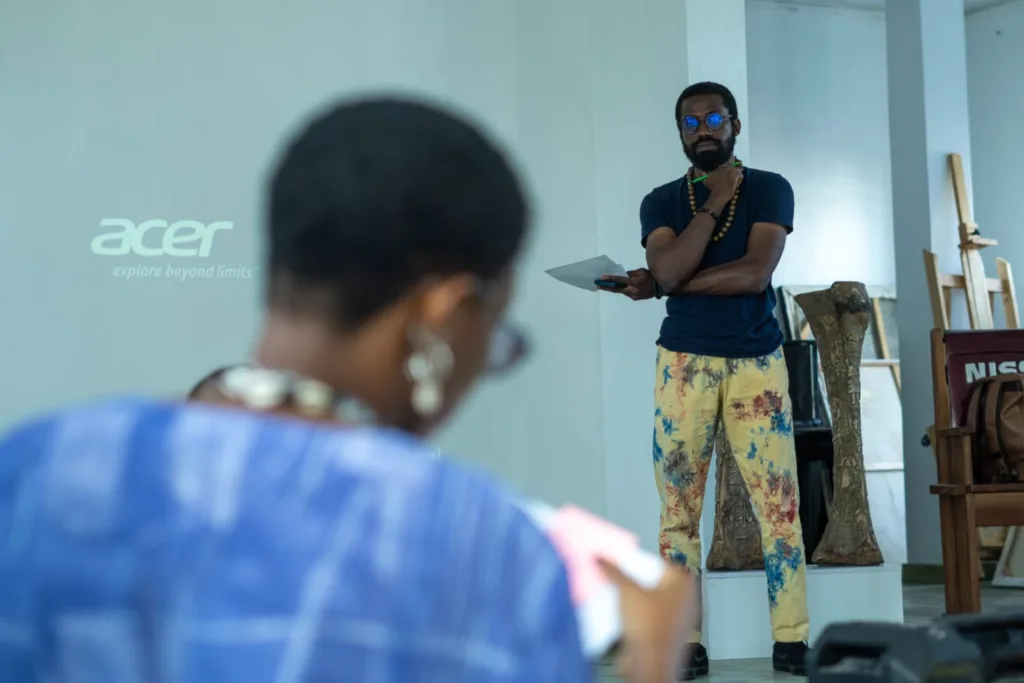
DIDI Museum Head Curator, Patrick facilitating Q&A session
After the screening, our head curator, Patrick Odimnfe, facilitated a Q&A session and invited feedback from attendees. This spurred a thoughtful conversation led by Jubilian Ngaruwa, exploring the nuances of indigenous storytelling. She talked about how indigenous narratives are often reshaped to fit Western storytelling ideals. An act which can dilute the authenticity of these stories. To illustrate, she shared an example of a chief from Osogbo who was a bit confused when asked to talk about himself, as this felt foreign in his cultural context.
Ngaruwa highlighted that her team initially had assumptions about how the story would unfold. However, they recognized the importance of letting the community tell their story in their own way. They chose to set aside any preconceived notions and allow the narrative to emerge naturally.
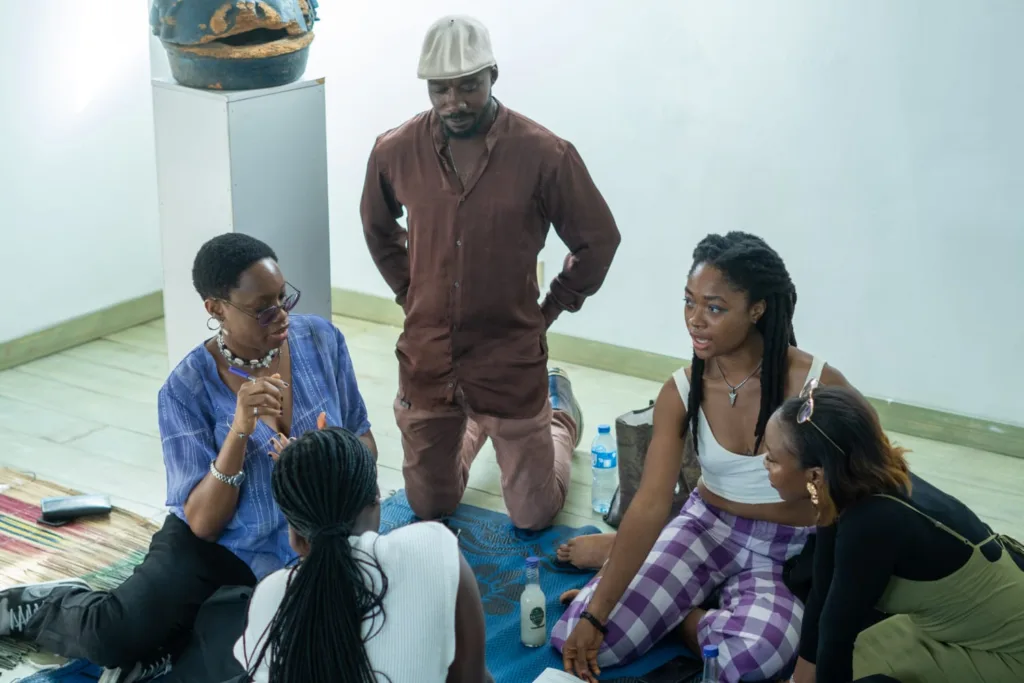
Participants engaging in a discourse
The film uniquely respects this authentic approach; it allows the communities to lead the narrative without external commentary. This allowed the story to unfold organically, resulting in an immersive storytelling experience free from interference. The audience responded positively, resonating with the film’s dedication to preserving cultural authenticity.
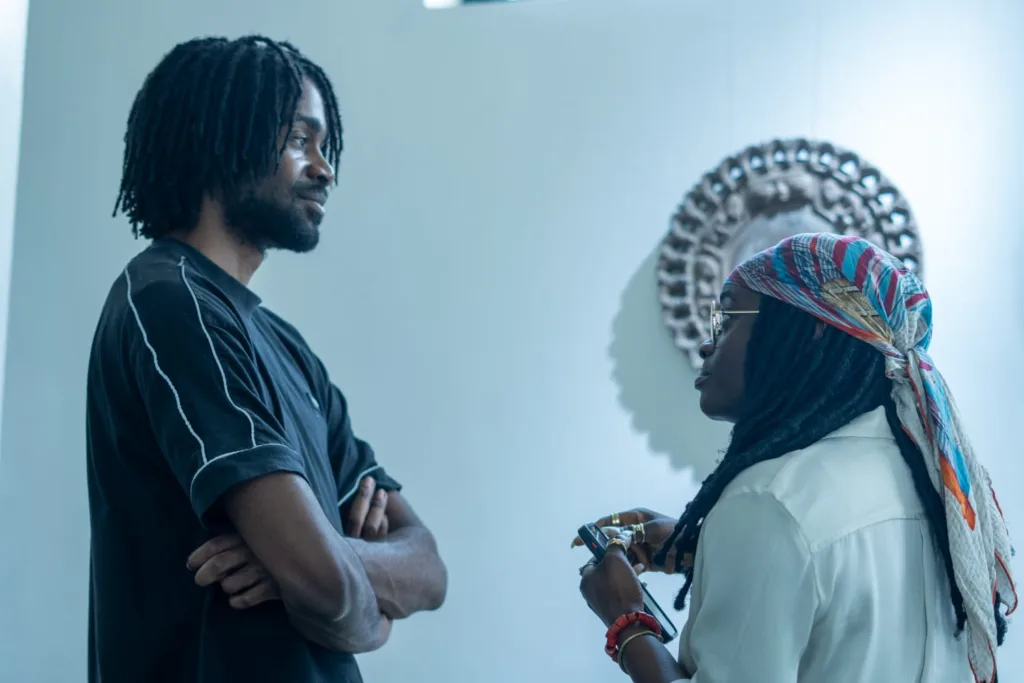
Participants having a conversation
DIDI Museum is dedicated to serving as a forum for the research, preservation, and promotion of arts and culture. Hosting this event and facilitating such an essential dialogue was a privilege for us.
Our deepest gratitude goes to the Ancestry team. Jubilian Ngaruwa, producer and director; Tessa Barlin, second director and editor; Dr. Daniel Mwamidi, lead researcher. We cannot forget the indigenous women of Osogbo and Idemili, whose voices and perspectives are at the heart of this film. Additionally, we thank the National Geographic Society for funding the field research that made this project possible. Looking forward, DIDI museum is excited to continue fostering collaborations that celebrate and elevate indigenous voices.
